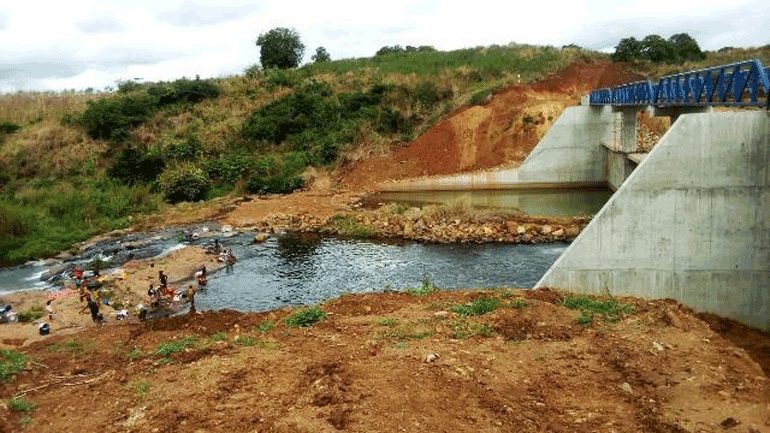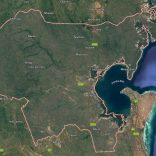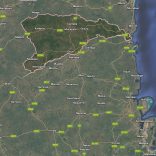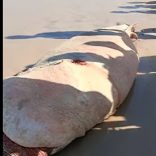Nine Indonesian crew stranded in Mozambique waters as legal dispute stalls repatriation - report
Geotechnical studies underway for Inhamizua dam

Photo: Notícias
A geotechnical study is being carried out to assess the suitability of the construction of a dam for the production of electricity in the outskirts of Beira, in the central Mozambican province of Sofala.
According to the director of the Central Regional Water Board (ARA Centro), Cacilda Machava, the dam at Povoa in the administrative district of Inhamizua will reduce flooding caused by heavy rains. The construction work will be carried out through a public-private partnership.
The impact of heavy rains is particularly severe in Beira as much of the city lies below sea level and it is feared that the situation can only get worse due to the effects of climate change. The most affected neighbourhoods in the city are Ndunda, Manga-Mungassa, Munhava-Matope, Vaz, Macurungo, Chota and Praia Nova.
Currently, around 20,000 victims of cyclone Desmond which hit the city at the end of January are living in accommodation centres in Josina Machel, Pavilhao dos Desportos, Manga-Mungassa, Matadouro, and Ndunda II.
Research carried out recently by ARA-Centro shows that ninety per cent of the city’s rainwater flows out to sea without being captured. Therefore, a dam at Povoa would serve several purposes.
Green park
Cacilda Machava pointed out that the city is also developing other measures to delay runoff including the establishment of a green park. According to Carlos Goncalves from Sofala’s Directorate of Public Works, Housing and Water Resources, construction work on the park began last June and is expected to be completed by June 2020. So far, the building of the embankments has been completed allowing for the opening of cycle paths, kiosks, spaces for public bathing, and seating areas.
The project is being implemented by the Water and Sanitation Infrastructures Administration (AIAS) as part of the programme to mitigate the effects of climate change. It will cost just over 31 million US dollars financed by the Mozambican government, the World Bank, and the German Development Bank (KfW).
This pilot project is divided into four parts, which includes the control the expansion of urban development in the area around the Chiveve River, protection of the mangrove and wetlands ecosystem, and the requalification of the zones along the waterway for recreational purposes.
During the 24 month development, China Henan International Cooperation Group (CHICO) will build an exhibition and events centre, green infrastructure, restaurants, walkways and kiosks along Avenida da Marginal. It will also construct pedestrian bridges, a municipal market, multipurpose buildings, and commercial spaces including an open-air amphitheatre. In addition, indigenous and ornamental trees will be planted along the Marginal.
The public will also benefit from the creation of a botanical garden, educational facilities, sports areas, and an open-air gymnasium.












Leave a Reply
Be the First to Comment!
You must be logged in to post a comment.
You must be logged in to post a comment.